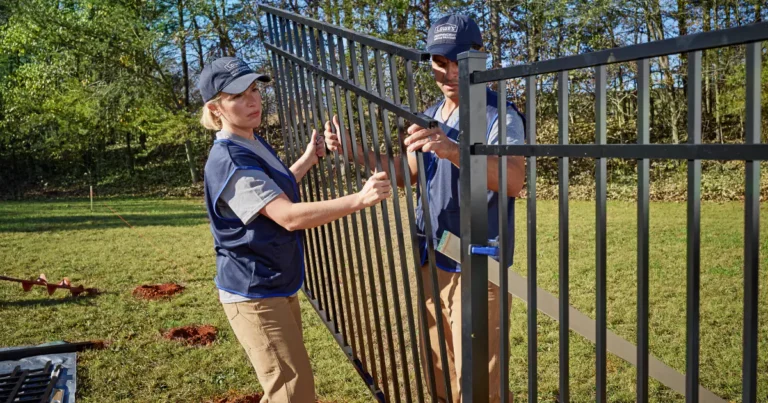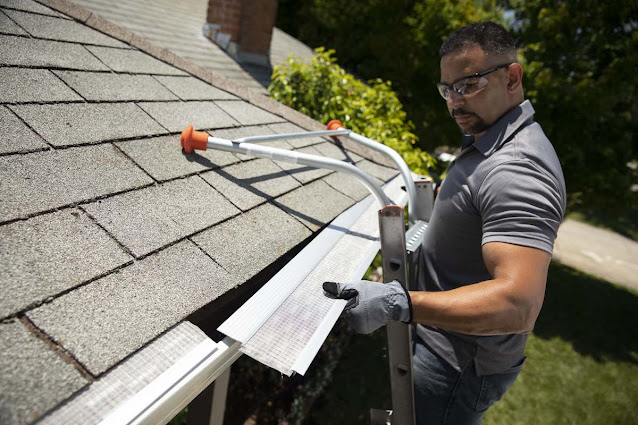7 Best AI Tools For Drywall Installers
Understanding AI in Drywall Installation
Artificial intelligence (AI) has become a transformative force in the construction industry, streamlining processes and enhancing the capabilities of drywall installors. Through the integration of AI algorithms, technology is no longer simply a tool but has become an active participant in construction projects.
- Robotic Assistance: AI-driven robotic arms can safely and efficiently install drywall, especially in repetitive or hard-to-reach spaces. They minimize the need for manual labor in strenuous or dangerous scenarios.
- Precision Cutting: Utilizing machine learning algorithms, cutting tools equipped with AI can accurately measure and cut drywall sheets, reducing waste and ensuring a perfect fit for each installation.
- Data Analysis: AI empowers drywall installers with data-driven decision making. Machine learning can analyze project data, spot trends, optimize resource allocation, and even predict maintenance needs for tools and machinery.
- Enhancing Services: AI helps in expanding the range of services offered by drywall installers. From acoustic optimization to thermal imaging analysis, AI equips professionals with sophisticated analyses for better client outcomes.
Incorporation of AI into drywall installation represents a significant leap forward, enabling higher precision, efficiency, and the opening of new service avenues. As the technology progresses, so too will the abilities and offerings of drywall professionals, poised to address the evolving demands of the construction industry. It’s a collaborative fusion where digital intelligence meets manual expertise, heralding a new era for construction trades.
Essential AI Tools for Efficiency and Quality
Advancements in AI technology are revolutionizing drywall installation, elevating both the efficiency and quality of work. Through specialized software and AI-enhanced tools, drywall professionals can optimize their workflow and ensure superior results.
AI-Driven Project Management Software
AI-driven project management software streamlines project tracking and enhanced project management on job sites. It predicts delays and recommends adjustments to keep drywall installation on schedule, reducing labor costs and improving compliance with deadlines.
Automated Inventory Management Systems
Automated inventory management systems harness AI to accurately forecast material needs and manage the supply chain. This minimizes shortages and ensures that essential tools like the jab saw, screw gun, and sanders are in stock when needed, directly impacting inventory management.
AI-Powered Precision Tools
AI-powered precision tools facilitate flawless cutting and placement of drywall. With tools like automatic taping machines integrated with AI, the accuracy of cutting drywall and application is significantly enhanced, reducing errors and waste.
Smart Scheduling and Resource Allocation
AI fosters smart scheduling by analyzing vast amounts of data to allocate resources where they are needed most. This results in a more efficient use of manpower and resources at job sites, diminishing excessive labor costs and managing the workforce effectively during shortages.
Machine Learning for Quality Control
Machine learning algorithms excel in quality control, identifying imperfections or deviations in drywall finishing. By analyzing images of installed drywall, it indicates areas needing correction, ensuring every job meets high standards of quality.
Virtual Reality for Training and Visualization
Virtual Reality (VR) changes the game for drywall installers, offering interactive training platforms and the ability to visualize blueprints in 3D space. This not only enhances collaboration but also improves the understanding of measurements and construction tools.
Predictive Maintenance of Equipment
Predictive maintenance employs AI to forecast when equipment such as screw guns or sanders may need servicing or repair, preemptively addressing issues before they cause work stoppages. Delays can thus be avoided, keeping projects on track and maintaining a rhythm of productivity on the job site.
Integration of AI with Traditional Installation Methods
The incorporation of AI into traditional drywall installation is revolutionizing the construction industry by enhancing precision, efficiency, and adaptability in material handling. Advanced tools and techniques are being integrated, providing high-quality craftsmanship and redefining installation methods.
Combining AI and Manual Tools
In construction, drywall installers are finding that AI can serve as a powerful assistant, offering precise guidance for manual tool use. Jab saws and utility knives are now connected to AI systems, which can analyze complex cut patterns and optimize the placement of cuts. As a result, cutting drywall becomes quicker and reduces material waste significantly. AI guidance helps ensure that the screws are placed at the optimal points, improving the stability of the installed drywall sheets.
Improving Drywall Installation Techniques
AI technology is transforming drywall installation techniques by introducing advanced sensors and algorithms. For example, a screw gun, when equipped with AI, can adjust its torque in real-time for better quality fastening, while sanding equipment can automatically adapt its pressure and speed to achieve a flawless surface ready for joint compound application. This technological leap ensures that each phase of the installation process meets the highest quality standards with remarkable consistency.
Adapting to New Materials: Wood, Plastic, and Metal
AI is adept at navigating the particulars of working with different materials, such as wood, plastic, and metal. By analyzing each material’s needs, AI tools can adapt techniques for handling diverse drywall sheets, whether it calls for customizing the torque of a screw gun for metal framing or adjusting the cutting blade of a utility knife for plastic or wood. This flexibility enables custom solutions that cater to the unique properties of each material type.
Augmenting Quality Craftsmanship with AI
With an AI-driven approach to drywall installation, the craftsmanship can achieve unprecedented levels of quality. Using technology to assist with precise measurements and layouts, for instance, means that a T-square can be coupled with visual recognition software to ensure perfect alignment every time. By supporting human skill with AI precision, installers are empowered to produce superior results that are true to the intended design and structural integrity.
Maximizing Business Outcomes with AI Tools
Implementing AI tools in the drywall installation business can have a profound impact on profitability and market positioning. They offer an opportunity to not only streamline operations but also to attract and retain customers through enhanced services.
Driving Business Growth and Revenue Streams
AI technology enables drywall installers to uncover new revenue streams and drive business growth. By adopting AI-driven estimating software, contractors can provide more accurate quotes faster, increasing the chance of winning bids. Tools that perform automated cost calculations can help businesses generate more competitive pricing models and secure more projects.
Enhancing Customer Satisfaction
Customer satisfaction is a cornerstone of business success, and AI tools are instrumental in achieving it. By utilizing AI for precise drywall cutting, contractors ensure that installations are completed with exactness, reducing material waste and finish time. Acoustic optimization services that use AI can deliver personalized solutions, improving customer service and in turn, enhancing customer loyalty.
AI for Competitive Advantage in Contracting
In a competitive market, AI provides a significant competitive advantage. Contractors employing AI tools for thermal imaging analysis can offer bespoke insulation solutions, standing out in the market. Effective collaboration between teams is facilitated by AI, leading to improved service delivery and market positioning. Robust AI marketing tools can help drywall installers tailor their messaging, targeting the right audience, and solidifying their presence in the marketplace.
AI Applications in Construction Site Operations
The construction industry is rapidly adopting AI technology to enhance efficiency and ensure high-quality outcomes. Specifically in construction site operations, AI tools are revolutionizing how tasks are performed, addressing common challenges such as installation errors, supplier interactions, and compliance issues.
Image Recognition for Detection of Installation Errors
AI-driven image recognition technology is becoming essential for detecting imperfections during the drywall installation process. These systems scrutinize images from the job site, comparing them against a database of standards to identify any deviations in real-time. This application of quality control ensures that any errors are promptly addressed, maintaining a high standard of construction work.
Using Chatbots for Supplier and Customer Interactions
Chatbots powered by AI are transforming communication channels between drywall installers, suppliers, and customers. They provide swift customer service and can facilitate lead generation by engaging potential clients, while also streamlining the ordering process from suppliers, which significantly enhances operational efficiency.
AI-Based Sensors for Real-Time Compliance Monitoring
Sensors equipped with AI capabilities are being deployed on construction sites for real-time monitoring and ensuring adherence to safety and regulatory standards. They form a critical part of a site’s compliance framework, alerting managers to any issues so immediate action can be taken to avoid hazards and legal complications.
Optimizing Resource Use and Reducing Waste
AI tools aid in optimizing resource use and achieving waste reduction during the construction process. By analyzing patterns in resource usage, AI can predict the optimum amount of materials needed, promote energy conservation, and minimize excess, which not only cuts costs but also reduces the environmental impact of construction activities.
Challenges and Solutions in Implementing AI in Drywall Installation
Integrating AI into drywall installation presents both opportunities and challenges, with each hurdle accompanied by a tailored solution. Drywall professionals must navigate these complexities to harness AI’s potential within the construction industry effectively.
Addressing the Skilled Labor Shortage
The shortage of qualified tradespeople in the construction industry can be mitigated by employing AI-powered tools. For example, robotic drywall installers can perform repetitive tasks, reducing the dependency on skilled labor. AI can also offer on-the-job training assistance, enhancing the productivity of less experienced workers.
Navigating Project Delays and Supply Chain Issues
AI plays a pivotal role in addressing project delays and supply chain disruptions by efficient inventory management. Use of predictive analytics can forecast demand, manage resources, and thereby minimize delays. Furthermore, AI tools can optimize scheduling and logistics to counteract these prevalent issues.
Standardizing AI Tool Use for Regulatory Compliance
To maintain standardization and compliance, AI applications are being tailored to meet regulatory requirements specific to the construction sector. This involves programming the tools to adhere to existing regulations and frequently updating them in response to changes in the regulatory environment.
Overcoming the Cost Barrier for Small Contractors
The initial investment in AI can be a significant cost barrier for small businesses. However, scalable solutions and modular AI tools allow for a graduated approach to investment. Collaborative consumption models, like shared-services or tool-rental platforms, provide a cost-effective entry point for small contractors.
Future Trends in AI for the Construction Industry
Advancements in AI are rapidly shaping the construction industry’s future, enhancing efficiency and precision, particularly within drywall installation tasks. These trends are not only improving traditional practices but are revolutionizing the roles and tools available for construction professionals.
The Evolution of Robotic Automation
The construction industry is increasingly relying on robotic automation to execute tasks with heightened precision and speed. Robotic arms, equipped with AI, are now capable of automatically installing drywall, significantly reducing manual labor and minimizing human error. This leap forward is paving the way for safer construction sites and more streamlined workflows.
Machine Learning’s Impact on Project Tractability
Machine Learning (ML) techniques are enhancing project tractability. They achieve this by analyzing vast amounts of data to forecast timelines and potential delays, thus ensuring that projects remain on track. Advanced data analysis tools are becoming a linchpin for project managers, enabling them to make informed decisions swiftly.
Cross-Industry Collaboration Driven by AI
AI is fostering cross-industry collaboration, encouraging partnerships that lead to innovative solutions. These cross-industry initiatives integrate diverse expertise to create AI tools that are tailored specifically for the construction sector, including the nuanced requirements of drywall installation.
Developing New AI-Powered Tools for Drywall Work
Innovation within AI is spearheading the development of specialized tools for drywall work. Future technologies include AI systems that can automatically measure and cut precise drywall sizes, and robots that can install them seamlessly, resulting in a boost in overall productivity and quality.
Advancement of Remote Supervision Technologies
Remote supervision technologies are expected to advance, with virtual reality (VR) and other remote platforms allowing supervisors to monitor work progress from afar. These technologies not only improve the tractability of on-site progression but also reduce the need for physical presence, thus saving time and resources.
Conclusion: The Role of AI in Reinventing Drywall Installation
Artificial Intelligence (AI) has become a pivotal force in reinventing installation processes within the drywall sector. Technologies such as robotic arms improve safety and efficiency, especially in areas that are repetitive or difficult to access. AI is not only changing how tasks are executed, but also how installers mine data for insights, leading to data-driven decision-making.
Emerging trends in AI for drywall installation encompass the use of machine learning to optimize the installation process, potentially transforming the trade. Acoustic optimization and thermal imaging analysis are among the services enriching the client experience and suggesting upsell opportunities through AI-driven solutions.
One can confidently assert that AI is shaping the construction future by integrating innovative tools that enable drywall professionals to predict project outcomes, tailor client interactions, and streamline their tasks. With such advancements, the role of AI is both transformative and indicative of a more efficient, safer, and customer-centric industry. As AI-powered tools continue to evolve, they promise to position drywall installation at the forefront of construction innovation.
Frequently Asked Questions
In the field of drywall installation, artificial intelligence tools are reshaping productivity and efficiency. This section addresses common inquiries regarding the integration of AI in various aspects of drywall services.
What are the top AI applications for improving drywall installation efficiency?
AI-driven robotic arms are increasingly being deployed to aid in the installation of drywall, especially in areas that are repetitive or hard to reach, thus enhancing both safety and efficiency. Furthermore, AI applications that optimize project logistics contribute to streamlining the drywall installation process.
How can artificial intelligence enhance construction drawing analysis for drywall contractors?
Artificial intelligence can interpret complex construction drawings, enabling contractors to quickly identify and quantify the materials required for drywall projects. This advanced analysis ensures more accurate and faster preparation for installation jobs.
Are there any cost-effective AI software solutions for construction estimating, specifically for drywalling?
Yes, there are cost-effective AI software solutions designed for construction estimating that cater to drywall-specific requirements. These tools assist in accurate and rapid estimation, reducing manual errors and saving time.
What AI-driven project management tools are recommended for drywall installations?
Project management tools powered by AI offer sophisticated scheduling, budget tracking, and resource allocation features, which are invaluable for managing drywall installation projects. They provide insights that can significantly enhance decision-making and workflow efficiency.
How is artificial intelligence revolutionizing the construction industry for specialized trades like drywalling?
Artificial intelligence is revolutionizing drywalling by automating routine tasks, providing precise estimations, and facilitating better project coordination, which leads to cost reduction and improved quality control in the construction industry.
What are the benefits of using AI in construction cost estimation for drywall services?
The use of AI in construction cost estimation helps drywall service providers to achieve more accurate bids, minimize waste, and optimize resource allocation. AI’s data-driven insights enable contractors to predict costs effectively and manage budgets efficiently.






